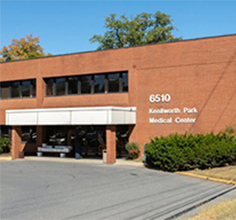
Walking into a doctor’s office for the first time can stir up more questions than answers. Maybe you’re switching providers after a move or getting serious about your health for the first time in years. Either way, the unknowns can be enough to make you delay the visit altogether. Your first appointment with a primary care doctor in District Heights is a chance to get a clear view of where you stand and to build a relationship that can carry you through every season of life. Southern Maryland Medical Group can help ease your mind. Care starts with clarity. If you’ve ever wondered what happens behind that exam room door, keep reading.
A first visit with your primary care doctor is all about laying the groundwork. You’ll likely be asked to arrive a little early to fill out paperwork if you haven’t already done it online. These forms cover your medical history, medication list, family health background, and any current symptoms or concerns. Once you’re in the exam room, the provider will walk through the details with you. Expect your doctor to ask about past illnesses, surgeries, allergies, and chronic conditions. If you’ve seen a heart doctor or other specialists before, it’s helpful to mention that and share any reports or findings. Everything you say helps shape the care you receive moving forward. Vitals will be taken, like blood pressure, pulse, temperature, weight, and sometimes oxygen saturation. These numbers create a baseline. If something looks off, the provider may decide to explore further. You might also get a physical exam, depending on your reason for coming in. This could include listening to your heart and lungs, checking reflexes, or a brief abdominal check. It’s not usually a long process, but it helps your doctor get a clearer picture of your current health status.
Many patients show up to their first visit unsure of what to say. You don’t need to rehearse, just make sure you bring the information. Here’s what helps the most:
Depending on your age, medical history, and current symptoms, your doctor may recommend basic screening tests or labs after your visit. Blood work is common and can reveal valuable information about cholesterol, blood sugar, kidney function, and more. In some cases, your primary care provider may recommend a referral. If you have a family history of heart disease or current symptoms like shortness of breath or chest pain, you may be referred to a heart doctor for further evaluation to make sure you have the right team working together to protect your long-term health. Women may be referred for a pap smear or mammogram. Men may be advised to start prostate screening depending on age and risk factors. Colon cancer screening starts around age 45 for most adults. These are powerful tools for early detection and prevention. Follow-up is a key part of what comes next. After your labs come in, your doctor will usually call or message you with the results. If further discussion or treatment is needed, you’ll be scheduled for another visit.
Primary care doctors do their best work when they know you before something goes wrong. A quality provider notices patterns in your energy, sleep, weight, and other important health factors. They ask how you’re coping with stress or whether you’ve had support through a loss. People who manage chronic conditions like diabetes, high blood pressure, or heart disease, can track progress much easier by seeing the same provider regularly. They'll help you adjust medications safely and keep you on the best path possible. If you’ve been seeing a heart doctor already, your primary care doctor can work alongside them to make sure nothing falls through the cracks. Even if you’re healthy right now, having a primary care provider is an investment in future health. It makes everything easier when the time comes that you do need help because you’re not starting from zero.
It’s easy to overlook how powerful a single appointment can be. Your first visit sets the tone and tells your doctor what matters to you. It also gives you a chance to ask questions and get real answers. If it’s been years since you’ve had a check-up, reach out to Southern Maryland Medical Group. Our primary care doctors are compassionate, experienced providers and are here to offer guidance. Call us today to schedule an appointment.
Southern Maryland Medical Group has 3 convenient locations to provide professional medical care services in the Southern Maryland area. Call or schedule an appointment with one of our locations to get medical care help.

5801 Allentown Road, Suite 400 Camp Spring, MD 20746
Phone: 301-868- 0150
Billing Inquiries: 301-552-1270
Fax: 301-868-0243

7500 Greenway Center, Dr #1200 Greenbelt, MD 20770
Phone: 301-486-7580
Billing Inquiries: 301-552-1270
Fax: 301-486-7581

6510 Kenilworth Ave, Ste 1400, Riverdale MD 20737
Phone: 301-618-0771
Billing Inquiries: 301-552-1270
Fax: 301-618-0772